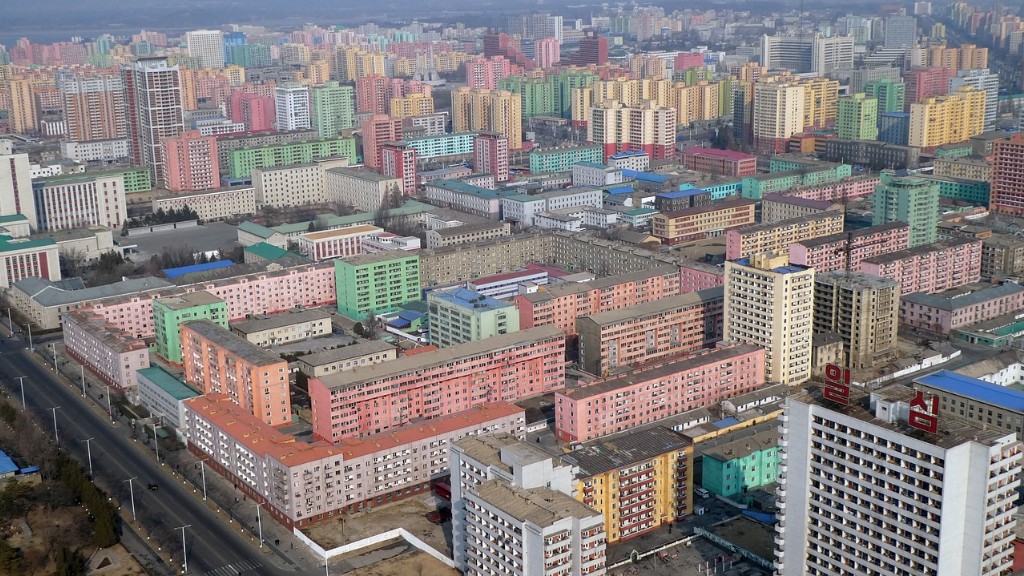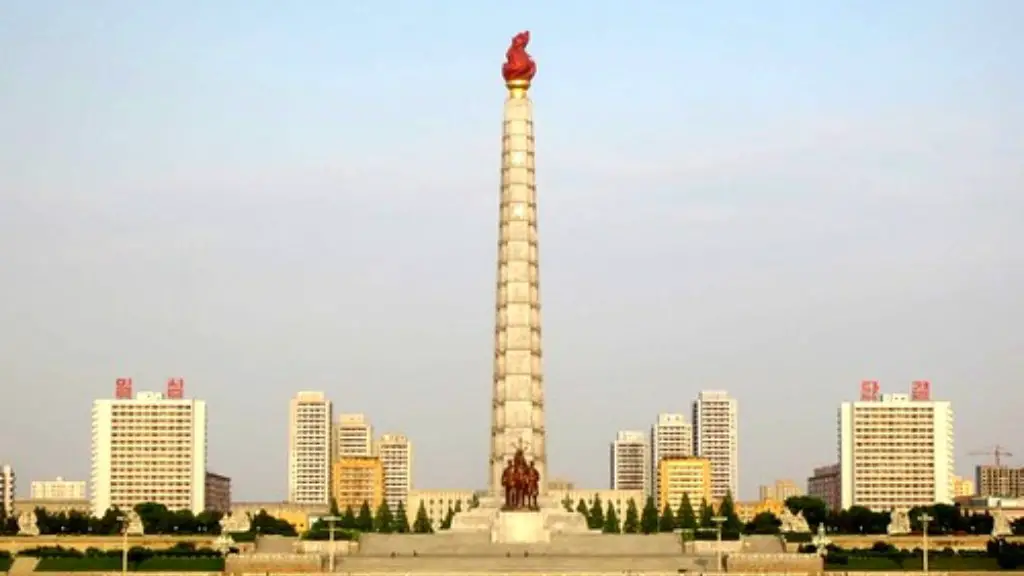Background Information
Recent events involving North Korea have continued to raise tension in the international community. The Kim regime has been accused of illegal nuclear activity, violating UN sanctions and launching missiles into Japanese airspace. These have certainly escalated tensions and raised the possibility of a US-led attack on North Korea. It is important to consider what such an attack could mean for the region and how it could potentially dramatically shift the geopolitical landscape of the world.
Data
The data on North Korea is both scarce and vague. However, some estimates suggest that North Korea has 15-60 nuclear warheads, missile ranges that extend beyond Japan as well as a standing army of well over 1 million soldiers. North Korea’s nuclear capabilities have been the subject of much debate and speculation, yet the potential damage caused by such a conflict is difficult to estimate. In addition to North Korea’s own nuclear capabilities, it is important to consider the potential assistance of other countries such as China, which could make the situation more complicated.
Experts Perspectives
Experts are divided on the issue. Some experts argue that attacking North Korea could cause massive destabilization in the region due to North Korea’s nuclear capabilities, while others say that a potential attack on North Korea could help contain the Kim regime and put an end to its nuclear ambitions. One expert, Bruce Klingner from the Heritage Foundation, suggests that an attack on North Korea would be “the riskiest approach” and could “trigger an escalation and potentially a catastrophic conflict”. On the other hand, John Bolton, former US National Security Advisor, argued that it may be necessary to “take pre-emptive action” to deal with the situation in North Korea.
Insight and Analysis
Attacking North Korea carries with it numerous risks and could potentially lead to a catastrophic war. Such a conflict could potentially have global ramifications, particularly if North Korea’s nuclear capabilities were to reach neighbouring countries such as South Korea or Japan, who are key US allies. In addition, the situation could be further complicated by potential assistance from countries, such as China, who could potentially come to the aid of North Korea should an attack occur.
It is also important to consider that attacking North Korea could cause an immense displacement of people and create a massive refugee crisis in the region. This could potentially have devastating humanitarian implications, and could further destabilize the region.
It is clear that attacking North Korea is a complicated issue with no easy solutions. The decision to do so should not be taken lightly and all the risks and implications should be thoroughly considered.
Political Implications
An attack on North Korea could have serious political implications for the region and the United States. An attack could potentially force the United States into a conflict with North Korea, something that it has been reluctant to do, as well as alienate other major countries in the region. It could also potentially worsen already strained relations between the US and China and lead to further geopolitical tensions in the region.
On the other hand, an attack on North Korea could potentially be seen as a show of strength by the United States and cement its position as the leading superpower. This could be seen as a signal to other countries in the region, such as China and Russia, that the United States is the dominant power in the region.
Consequences
If the United States were to attack North Korea, the consequences could be dire. Not only could a conflict potentially lead to a full-scale war, but it could also potentially cause massive destruction and destabilization in the region. The economic consequences of a full-scale war could be devastating, as the region is already struggling to contain the impact of the current pandemic.
Furthermore, the Kim regime could potentially use the attack as a justification to suppress its own people and further tighten its hold on the country. This could lead to further human rights abuses in the country and further suffering for its people.
International Perspective
The international community has been largely silent in regards to the issue, with many countries reluctant to intervene in the situation. This is likely due to the potential consequences of an attack on North Korea, which could potentially destabilize the entire region. Many countries in the region, such as China and Russia, are likely keen to avoid a conflict, particularly if the consequences could be dire.
The United Nations has spoken out against a potential attack on North Korea, stating that any such act could lead to further instability in the region. This is an important perspective to consider, as a conflict could potentially have immense global ramifications.
Impact on the Region
The consequences of an attack on North Korea could potentially be catastrophic for the region. Not only could a full-scale war cause massive destruction and displacement of civilians, but it could potentially lead to further destabilization in the region. It could also potentially worsen already strained relations between countries in the region, further deepening divisions in the area. Furthermore, a war could potentially lead to the spread of nuclear weapons to other countries in the region, leading to even more instability.
Implications for US
An attack on North Korea could potentially have immense implications for the United States. Not only could such an attack further damage the country’s reputation in the region and globally, but it could also potentially draw the United States into a protracted and costly conflict. In addition, an attack on North Korea could potentially lead to a shift in alliances in the region, with countries such as China, Russia and North Korea potentially forming an alliance against the United States. Such a shift could potentially have significant consequences for US foreign policy.


